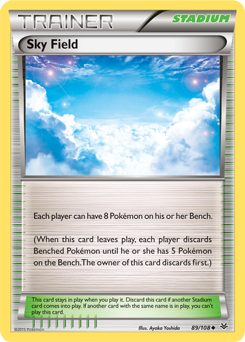New Year Round-up: 10 Lessons from 2017 (Part 2)
Continuing our series on the big lessons from 2017, we’re now going to dig deeper into the year, finding important lessons about playing, deck-building, and metagaming that are relevant to our growth as competitors. If you would like to see the first part of my year round-up, please click here; otherwise, please enjoy my last premium program article of 2017!
Lesson Six: Don’t Focus Solely on One Format

The event: Standard and Expanded are now a 50 / 50 split throughout the season
The lesson: Focus your testing to avoid being type-cast to one format
I’ve actually touched on this idea before, but with Regionals year-round, players are given numerous ways to show off their skills aside from just Internationals or Worlds. From my “Runner-up Reflections” article:
“Worlds is an incredibly cool thing to be a part of, and day two is even cooler if you qualify. But as many of you head into that 2017-2018 season right around the corner, I would encourage you to aim higher than a mere Worlds invite. The obvious conclusion you may get from that is “do well at Worlds,” but you can actually make incredible accomplishments throughout the whole year now. Between the serious prestige and cash prizes associated with Regional Championships and International Championships, the world’s best players are now coming to you no matter where your next big event may be.”
In the same vein of finding major success in venues outside of Worlds, I’m also noticing that some personalities could reasonably be considered “type-cast” players. By that I mean they are much more at home in Standard or Expanded, and for whatever reason perform better in their format of choice. You might find that this also applies to you, especially if you’ve noticed all of your success coming from one format and not the other. As an old-school player who just takes all the formats as they come his way, I personally don’t see myself as a specialist, and I have honestly done more or less the same in both formats. However, I can certainly imagine a few reasons why:
- A player has a pet deck they are really good with. You can see the “pet deck” symptom split either in favor of Expanded — where far more classic archetypes are legal — or in favor of Standard — where several decks unplayable in Expanded become top-tier.
- Expanded complements different skills than Standard. While both are fundamentally the same game, Expanded rewards players who are good at “reading” their opponents, similar to poker pros picking up on body language. The king of this trope is Ghetsis, a somewhat risky turn one play over a Brigette unless you’re reasonably confident you can steal a game. Yet Expanded also opens up a whole world of oppressive lock decks not available in Standard, such as hard deckout (Durant, Sylveon-GX), soft deckout (Wailord-EX), and hybrid builds (Sableye / Garbodor). In Standard’s favor, wars of attrition are much more common than the slug-fests you’ve come to know and love from Night March, Turbo Turtles, and Archie’s Blastoise — a point which I’ll address later.
- Card ownership — that is, people just don’t own enough old stuff! While this may be relevant to what you see at local League Cups (especially Expanded ones) I’ll be assuming that this is irrelevant to an audience paying to read my article.
Considering those three reasons, the first one is in my eyes the most justifiable reason for why one player might be “type-cast” into one format over the other. However, this is a poor place to be. Usually the film and TV-consuming public consider “type-cast” acting to be a poor place to be. This is due to the fact that the actor in question is trapped in a limited set of roles, and can’t obtain the sort of widespread acclaim across genres like Tom Hanks can.
So how do you get to be a Pokemon Trading Card Game version of Tom Hanks? Test thoroughly in both formats, and look to identify the reasons why you might struggle with one format more than another. This doesn’t mean you have to know every possible matchup Expanded has to offer, but you should at least know all of the major cards from Black and White through Crimson Invasion. Similarly, when translating a deck from one format to the other, know that some important elements will not be available in Standard. Finally, if you still find that one format evades you, or that you simply do not have the time to plan carefully for one format that might make up only 20% of your season’s schedule, it might help to find a good tier one deck and stick with it. I would advise testing the formats relative to their importance to your schedule — not necessarily a perfect 50 / 50 split between the two.
This concludes the public portion of this article.
If you'd like to continue reading, consider purchasing a PokeBeach premium membership! If you're not completely satisfied with your membership, you can request a full refund within 30 days.
Each week we post high-quality content from some of the game's top players. Our article program isn't a corporate operation, advertising front, or for-profit business. We set our prices so that we can pay the game's top players to write the best content for our subscribers. Each article topic is carefully selected, goes through multiple drafts, and is touched up by our editors. We take great pride in our program!

